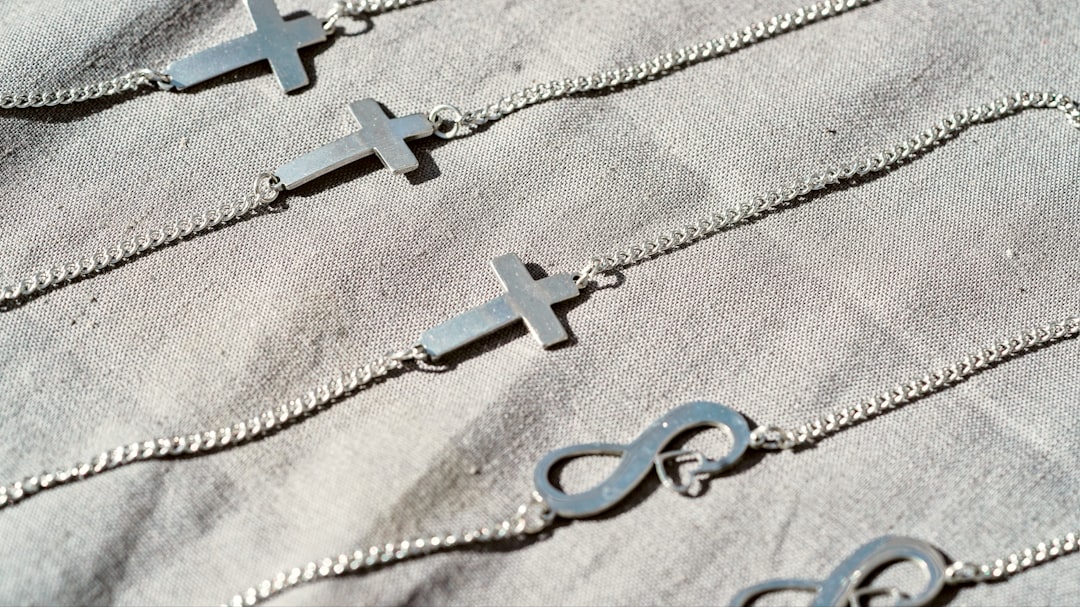Your Guide to Partnering with Top Wholesale Sterling Silver Manufacturers for Hypoallergenic Jewelry
Why the Right Wholesale Sterling Silver Manufacturer is Crucial for Your Brand
The success of your jewelry business hinges on the quality and reliability of your products. Partnering with the right wholesale sterling silver manufacturer is not just a supply chain decision; it's a foundational pillar for your brand's reputation. A top-tier manufacturer provides consistency, craftsmanship, and compliance, ensuring every piece you sell meets customer expectations. Conversely, a poor choice can lead to customer complaints, returns, and lasting damage to your brand's credibility. In a competitive market, prioritizing quality and safety—specifically by offering hypoallergenic options—can set you apart and foster long-term customer loyalty.

Understanding Sterling Silver: Beyond the 925 Stamp
Most people recognize the "925" stamp as a sign of genuine sterling silver, but what does it really mean? The number signifies that the metal is composed of 92.5% pure silver. The remaining 7.5% is an alloy of other metals, added to increase hardness and durability, as 99.9% pure silver is too soft for most jewelry applications. This 7.5% is where quality can diverge dramatically. While high-quality manufacturers typically use copper, which is largely non-allergenic, some lower-cost producers use nickel—a common and potent allergen. Therefore, simply seeing a 925 stamp isn't enough; you must understand the full composition of the alloy.
The "Hypoallergenic" Promise: What Does It Really Mean?
The term "hypoallergenic" means that a product is less likely to cause an allergic reaction. However, this term is not legally regulated in the United States, meaning it can be used with little substantiation. For jewelry retailers, it's crucial to look beyond the label and demand specifics. True hypoallergenic jewelry avoids common allergens, with nickel being the primary culprit. A skin allergy to metal, known as contact dermatitis, affects a significant portion of the population and can cause symptoms like redness, itching, and even blisters. By ensuring your products are genuinely skin-friendly, you cater to a large and appreciative customer base.
Nickel-Free Sterling Silver: The Gold Standard for Sensitive Skin
For ultimate customer safety and satisfaction, offering nickel-free sterling silver is the best practice. A nickel allergy is one of the most common forms of contact dermatitis, and once a sensitivity develops, it is lifelong. By partnering with a manufacturer that explicitly guarantees nickel-free alloys, you protect your customers and enhance your brand's reputation for quality and care. This commitment demonstrates a level of professionalism and ethical responsibility that discerning buyers value.
Comparing Common Sterling Silver Alloys
| Feature | Sterling Silver with Nickel Alloy | Nickel-Free Sterling Silver (Copper Alloy) |
|---|---|---|
| Composition | 92.5% Silver, 7.5% Nickel/Other Metals | 92.5% Silver, 7.5% Copper/Zinc/Germanium |
| Hypoallergenic? | No - High risk of skin reaction | Yes - Low to no risk of skin reaction |
| Durability | High | High |
| Target Audience | General market, often lower price points | Health-conscious consumers, sensitive skin market |
| Brand Perception | Standard, potentially risky | Premium, safe, and trustworthy |
Key Qualities of a Top-Tier Sterling Silver Manufacturer
Selecting a manufacturing partner requires careful vetting. Beyond pricing and product catalogs, look for these indicators of a high-quality operation:
- Transparency: They should be open about their material sourcing and alloy composition.
- Craftsmanship: The quality of their polishing, stone setting, and finishing should be impeccable.
- Technology: Use of modern technology like CAD/3D printing for precision and consistency is a good sign.
- Ethical Practices: Adherence to ethical sourcing and labor standards is non-negotiable.

Material Sourcing and Purity: The Foundation of Quality
A reputable manufacturer will provide clear documentation about where their silver and other metals are sourced. They should be able to verify the purity of their silver and confirm the exact metals used in their alloys. Ask for certifications or test results that prove their claims. This level of transparency is a hallmark of a trustworthy partner and ensures that you are not inadvertently selling products with harmful materials. Ethical sourcing also extends to gemstones, ensuring they are conflict-free and responsibly obtained.
Advanced Manufacturing Techniques and Craftsmanship
Look for a manufacturer that balances traditional craftsmanship with modern technology. Advanced techniques like laser welding, precise casting, and consistent polishing processes result in a superior product. A skilled workforce is equally important; artisans who are experts in stone setting, engraving, and finishing can elevate a simple design into a treasured piece of jewelry. The difference between a mass-produced item and a finely crafted one is often found in these small but significant details.
Essential Questions to Ask Your Potential Wholesale Partner
Before committing to a manufacturer, arm yourself with the right questions. This will help you gauge their expertise, reliability, and suitability for your brand.
- Can you confirm that all your 925 sterling silver is nickel-free?
- What specific metals do you use in your 7.5% alloy?
- Can you provide certifications for your materials (e.g., REACH/ASTM compliance)?
- What are your quality control processes at each stage of production?
- Do you offer customization or private label services?
- What are your Minimum Order Quantities (MOQs) and pricing tiers for bulk orders?
- Can I order samples to evaluate the quality firsthand?
- What are your lead times for both stock and custom orders?

Navigating Certifications and Compliance Standards
For businesses operating in or selling to international markets, compliance with standards like the EU's REACH regulation is critical. REACH restricts the use of certain chemicals, including nickel, in consumer products. A manufacturer that is knowledgeable about and compliant with these regulations is a much safer partner. Look for suppliers who can provide documentation of their compliance, as this protects you from legal issues and ensures your products are safe for a global audience.
Building a Long-Term Partnership for Success
Your relationship with a manufacturer should be a partnership, not just a transaction. A great partner will be invested in your success, offering reliable communication, consistent quality, and support as your business grows. They will work with you to develop new designs and solve problems collaboratively. By choosing a manufacturer that aligns with your brand's values of quality, safety, and integrity, you build a resilient supply chain and a brand that customers can trust for years to come.
